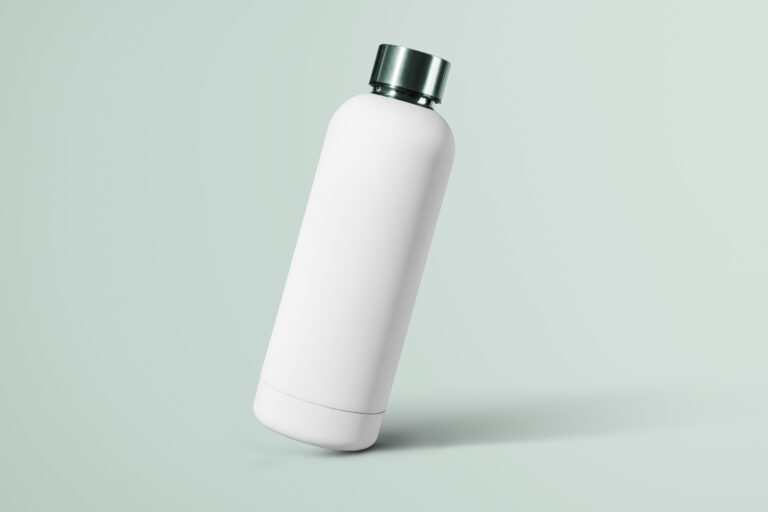-
Patient Resources
-
-
Services
-
-
Service Details
-
Proudly Part of Privia Health

HOTFLASHES | December 2023
How much water do you really need each day?

While you may have heard you need to drink eight glasses of water each day, the amount of water you need is a little more complicated than that. Recommendations have changed over the years, and your individual needs are likely affected by your health, level of activity, and where you live. In this article we’ll go over how much you really need, reasons to modify your intake, and how to know you’re drinking enough water.
How much water do I really need?
The U.S. National Academies of Sciences, Engineering, and Medicine has determined the average, healthy adult living in a temperate climate. For women, this is 11.5 cups or 2.7 liters of fluids a day for women. For men, this is roughly 15.5 cups or 3.7 liters of fluid a day.
While water is a great option for staying hydrated, milk, juice, and herbal teas also contain mostly water. You can also consume liquids from fruits and vegetables like watermelon and spinach. Even coffee and soda can contribute towards your daily water intake. However, you don’t want to go overboard with the sugary drinks, as they can contain a lot more calories than you need during the day.
When do I need to drink more water?
While the numbers above provide a good base level for what healthy adults need, there are situations where you need to drink more than 2.7 liters for women or 3.7 liters for men. Reasons you may need more water include:
- When you’re exercising
- If you’re in hot, humid weather
- If you have a fever, vomiting, diarrhea, or other sicknesses
- If you are pregnant or breastfeeding
How do I know when I’m drinking enough water?
Ultimately, you know your body best, and if you rarely feel thirsty and your urine is colorless or light yellow, you’re probably getting enough water.
https://www.mayoclinic.org/healthy-lifestyle/nutrition-and-healthy-eating/in-depth/water/art-20044256#:~:text=The%20U.S.%20National%20Academies%20of,fluids%20a%20day%20for%20women
Is spending time with loved ones beneficial for your health?

When most of us think of doing something positive for our health, we think about eating a little healthier, drinking more water, or getting more exercise. While those are very important steps to take for your health, their focus is on your physical health. Your mental and social health are also important aspects of your health.
There is evidence to suggest your social network and the social support you have available is very beneficial for both your physical and mental health. If you are very socially active, this may lead to lower stress levels, an improved mood, more positive behaviors, better cardiovascular health, improved illness recovery, and much more. In contrast, social isolation is associated with lots of negative impacts, like higher rates of chronic disease, mental health conditions, and more.
While social media does help us stay connected to friends and family members who may live far away, recent studies found social media could actually be tied to higher rates of loneliness. The impact of your social support seems to hinge on in-person interactions, like a meal with your family, walking with your neighbor, or talking with friends.
This means it’s especially important to find time for your family and friends in-person. If you’re struggling to connect with people in person, try exercising in a group, volunteering, or sharing a meal. Even talking to co-workers after a meeting or short, quick interactions with strangers can have an impact. While social media should not be used in place of in-person relationships, it can still be helpful in finding meaningful connections if used strategically.
https://time.com/5609508/social-support-health-benefits/
Crispy Potato Pancake Poppers

Ingredients:
- 3 tablespoons butter, melted
- 2 large russet potatoes, peeled
- ½ tablespoon garlic powder
- 1 ½ teaspoons kosher salt
- ¼ teaspoon ground black pepper
- 1 pinch cayenne pepper, or to taste
- 1 tablespoon olive oil
- 1 tablespoon all-purpose flour
- ½ cup finely grated Parmigiano-Reggiano cheese
Directions:
- Preheat the oven to 450 degrees F (230 degrees C). Very generously brush melted butter into the bottom and sides of 24 mini muffin cups. Place the tin(s) on a baking sheet and set aside until needed.
- Add cold water to a large bowl until 1/3 full. Grate potatoes into the cold water, then fill the bowl almost to the top with more cold water. Swish the potatoes around with your hands to rinse off the starch, then pour off most of the water and refill with more cold water. Continue this process until the water runs almost clear. Pour potatoes into a colander and let drain for a few minutes.
- Transfer grated potatoes to a clean kitchen towel. Wrap potatoes in the towel and squeeze over a bowl until no more liquid comes out.
- Transfer potatoes to a clean bowl and add garlic powder, salt, pepper, cayenne, and olive oil. Sprinkle flour over top, then add Parmigiano-Reggiano. Mix and toss gently with your hands until thoroughly combined and mixture feels damp.
- Grab potato mixture from the bottom of the bowl to get as much moisture as possible, and fill the prepared muffin cups. It's okay if the mixture comes up above the pan by 1/2 to 1 inch.
- Bake in the center of the preheated oven until golden brown on top, caramelized on the bottom, and crispy all over, 40 to 45 minutes.
- Remove from the oven and let sit in the pan for 5 minutes before flipping them over onto the baking sheet.
https://www.allrecipes.com/recipe/8293225/crispy-no-fry-potato-pancake-poppers/
